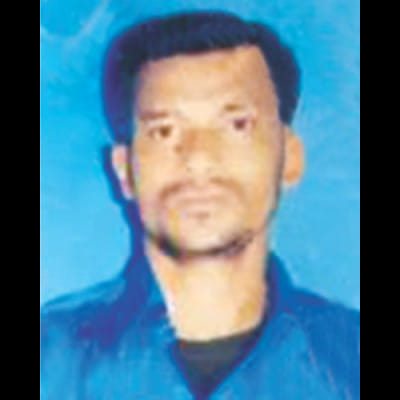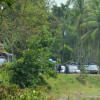Lokman disappeared again and again

Before being killed along with his wife and children during the police raid in Moulvibazar's Nasirpur last week, Sohel Rana alias Lokman remained missing for about a decade, friends and family members have said.
It was 2007, and the then caretaker government was cracking down on Jama'atul Mujahideen Bangladesh (JMB) operatives, already infamous for their terror attacks across the country.
It's not clear if Lokman was a member of the banned militant outfit, but he suddenly left his Dinajpur home with his wife and three young daughters at the height of the anti-militant campaign.
Then in 2013, he briefly returned home and then went missing again with his wife and kids, said friends and relatives, describing him as a “religious man” who would invite people to offer their prayers.
Lokman, 40, grew up at Dinajpur's Danga village under Ghoraghat upazila. He studied at a local madrasa for a while, and then quit. He later took up farming and married Shirin Akhter of Kalapara under the same upazila in 2002.
"[In 2007] He suddenly disappeared with his wife and three daughters," said his father-in-law Abu Bakar Siddique.
Siddique identified Lokman, his wife and their daughters from a family photo that law enforcers claimed to have found in the hideout at Nasirpur after the operation codenamed “Operation Hit Back”.
When Lokman went missing in 2007, Siddique kept looking for him everywhere and eventually tracked him down four months later. He was living with his wife and daughters in a rented house at South Dibipur village under the same upazila.
"I brought my daughter and granddaughters to my house and they lived with me until 2013,” Siddique said.
Before the 2007 disappearance, Siddique sensed Lokman might be involved in militancy and often asked him to shun the wrong path in vain.
"Then some time in 2013, he came home and told me that he left the path. I believed him when he said he got a job at a garment factory in Dhaka. Shirin was not willing to go with him, but I convinced her. Now I know it was a big mistake," he said.
As neither Lokman nor Shirin contacted him, Siddique grew suspicious. He again started looking for his daughter at different places but could not find her.
Then about a year later, Shirin called him, saying that she suspected Lokman was involved in radical activities.
A desperate Siddique kept searching for Shirin. About three months ago, he got a call from someone telling him that his daughter was in Cox's Bazar. He took a trip there, but could not find Shirin.
Then in the early hours of March 30, when the police raid was on at Nasirpur, Siddique got a phone call. Soon he realised it was his eldest granddaughter, Amina Begum, 12.
"She was crying and passed the phone to her mother [Shirin]," said the father, weeping.
Shirin spoke with her parents for nearly half an hour when she repeatedly sought their forgiveness.
“I asked Shirin to return home or give me her address, but she couldn't give it. She said they had no scope to return. To convince her, I offered her 50 decimal of land. But she said she didn't know the address.”
By the time the raid ended on Friday, Lokman, Shirin and their daughters were killed in what police said in suicide blasts.
Though police and doctors said four children were among the dead, Siddique said all the five kids have died.
Apart from Amina, the four others are Sumaia, 9, Fatema, 7, Moriam, 4, and Khadiza, aged just five months.
Contacted yesterday, one of Lokman's sisters (name withheld) said he did not maintain contacts with them since his disappearance in 2007.
His childhood friend Faruk Hossain said, "He was a religious-minded man and used to ask villagers to offer prayers regularly."
Although Lokman's link with militancy was known to the police, he remained out of the police dragnet.
His name came up in a bomb blast case first in 2003, when he was made a suspect in a case over an explosion at his Danga village. However, police could not immediately say if his involvement was ever found. The status of the case could not be known either.
He was also an accused in a case filed on October 25, 2008, with Shibganj Police Station of Chapainawabganj.
As per the case, Shibganj police arrested two JMB militants in October that year. During interrogation, the two said Lokman was their associate, police claimed.
The case is now under trial, said Chapainawabganj court inspector Anwar Hossain.
Several counterterrorism officials said Lokman was a mid-level recruiter of “Neo JMB”. His main job was to collect suicide bombers.
They said Lokman completed his Alim from a madrasa during his one-and-half-years stay in Bandarban. He was an imam at a local mosque. Additionally, he used to work at a rubber forest.

 For all latest news, follow The Daily Star's Google News channel.
For all latest news, follow The Daily Star's Google News channel. 





Comments